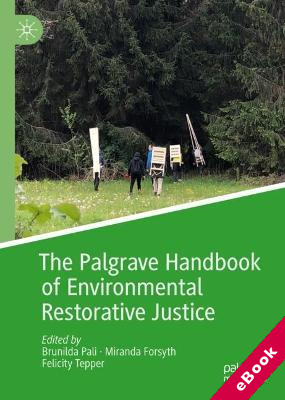
The device(s) you use to access the eBook content must be authorized with an Adobe ID before you download the product otherwise it will fail to register correctly.
For further information see https://www.wildy.com/ebook-formats
Once the order is confirmed an automated e-mail will be sent to you to allow you to download the eBook.
All eBooks are supplied firm sale and cannot be returned. If you believe there is a fault with your eBook then contact us on ebooks@wildy.com and we will help in resolving the issue. This does not affect your statutory rights.
This handbook explores the dynamic new field of Environmental Restorative Justice. Authors from diverse disciplines discuss how principles and practices of restorative justice can be used to address the threats and harms facing the environment today. The book covers a wide variety of subjects, from theoretical discussions about how to incorporate the voice of future generations, nature, and more-than-human animals and plants in processes of justice and repair, through to detailed descriptions of actual practices of Environmental Restorative Justice.
The case studies explored in the volume are situated in a wide range of countries and in the context of varied forms of environmental harm - from small local pollution incidents, to endemic ongoing issues such as wildlife poaching, to cataclysmic environmental catastrophes resulting in cascades of harm to entire ecosystems. Throughout, it reveals how the relational and caring character of a restorative ethos can be conducive to finding solutions to problems through sharing stories, listening, healing, and holding people and organisations accountable for prevention and repairing of harm. It speaks to scholars in Criminology, Sociology, Law, and Environmental Justice and to practitioners, policy-makers, think-tanks and activists interested in the environment.